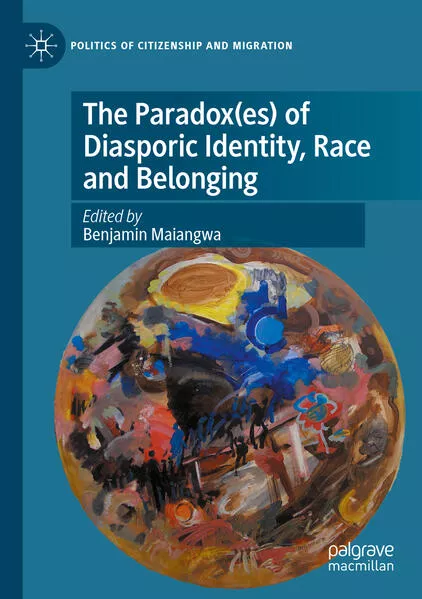
- Publikationen ca: 3
- Fragen & Antworten
Benjamin Maiangwa
The Paradox(es) of Diasporic Identity, Race and Belonging
This book explores how questions about home and belonging have been framed in the discourses on race, migration, and social relationships. It does this with the aim of envisioning alternative modes of living and reimagining our political communities in ways that question the legacy of colonization and constructed identities which detract from our sense of obligation to each other and the planet.
The Paradox(es) of Diasporic Identity, Race and Belonging
This book explores how questions about home and belonging have been framed in the discourses on race, migration, and social relationships. It does this with the aim of envisioning alternative modes of living and reimagining our political communities in ways that question the legacy of colonization and constructed identities which detract from our sense of obligation to each other and the planet.
The Paradox(es) of Diasporic Identity, Race and Belonging
This book explores how questions about home and belonging have been framed in the discourses on race, migration, and social relationships. It does this with the aim of envisioning alternative modes of living and reimagining our political communities in ways that question the legacy of colonization and constructed identities which detract from our sense of obligation to each other and the planet.


